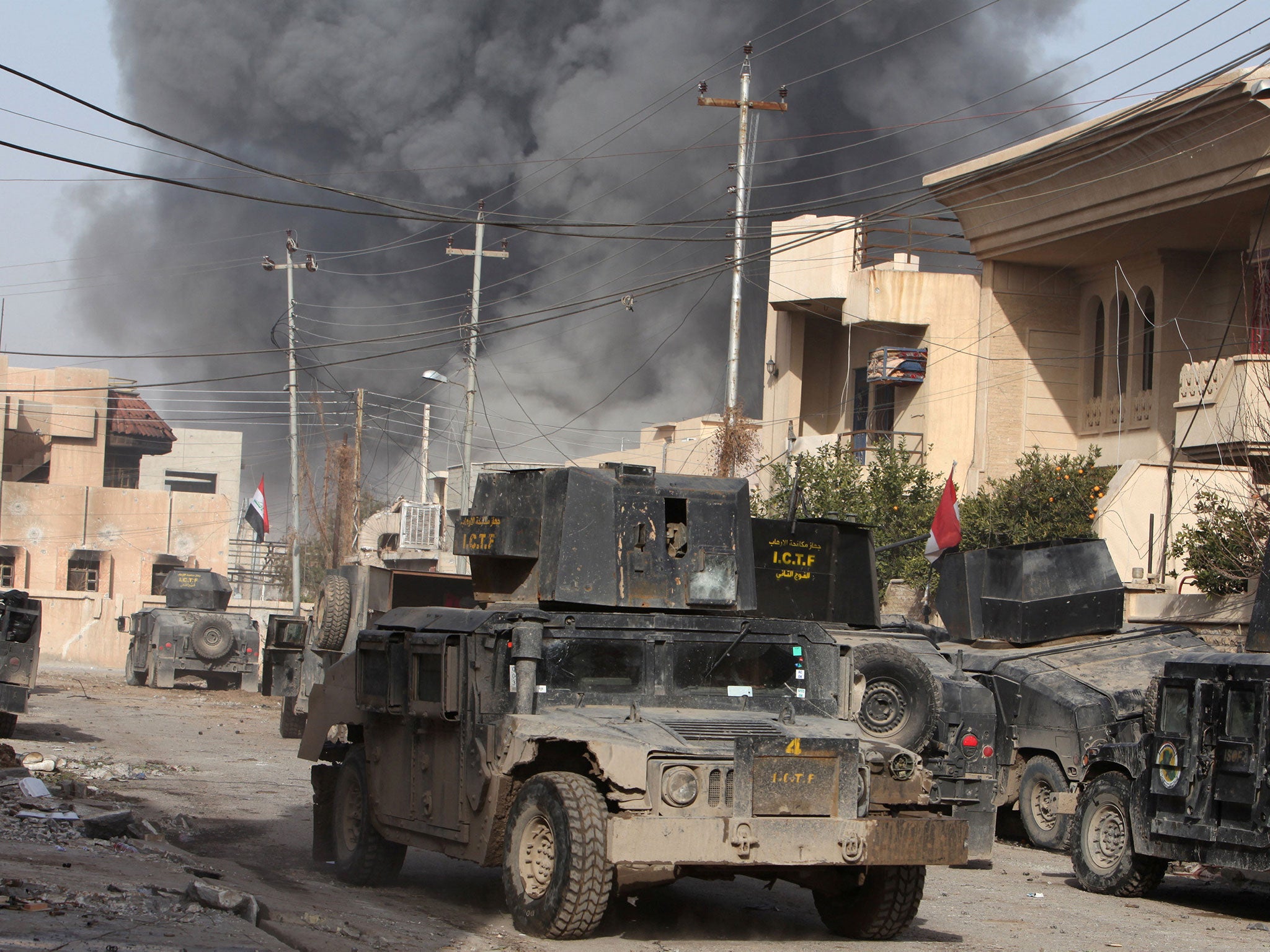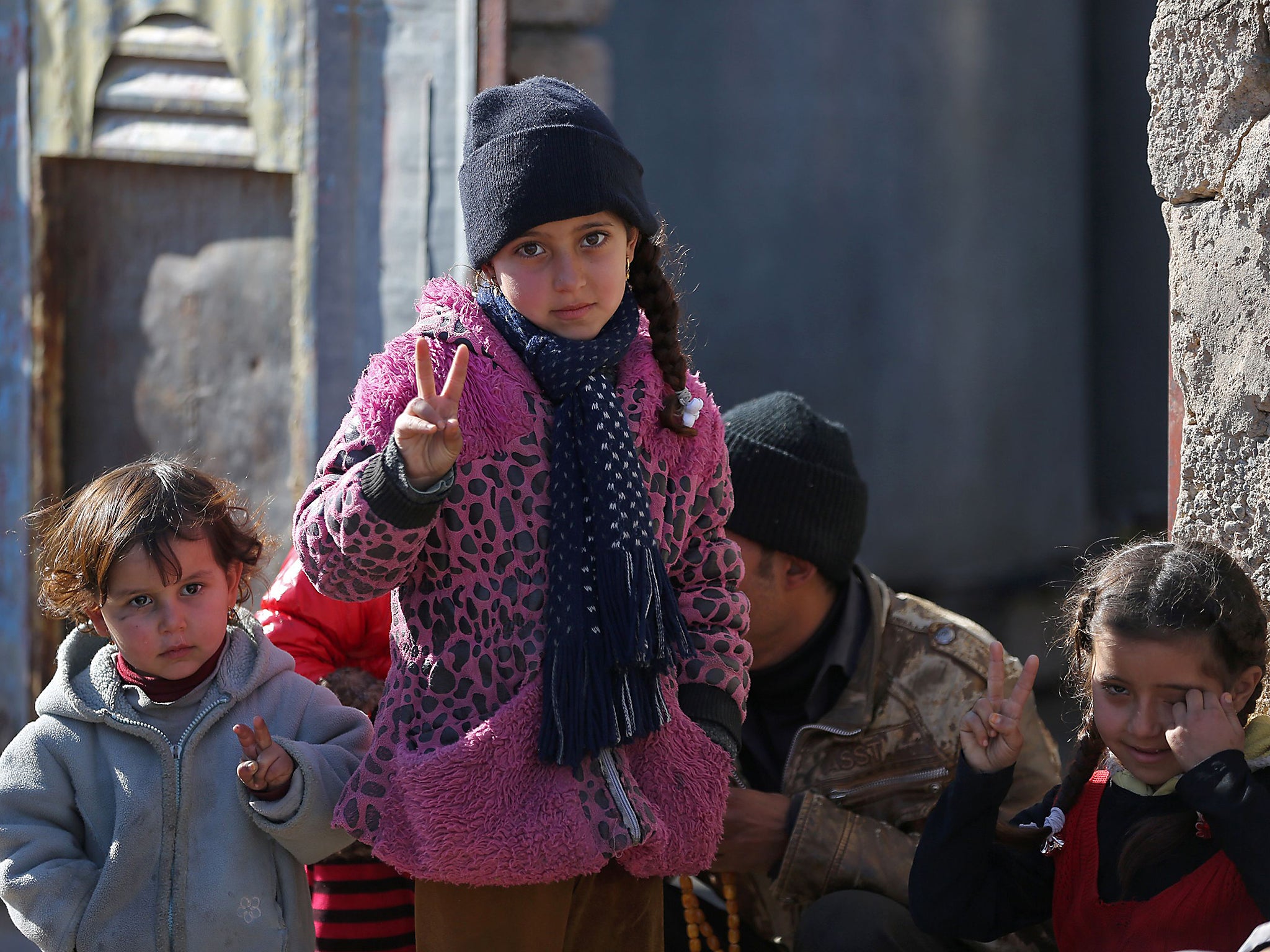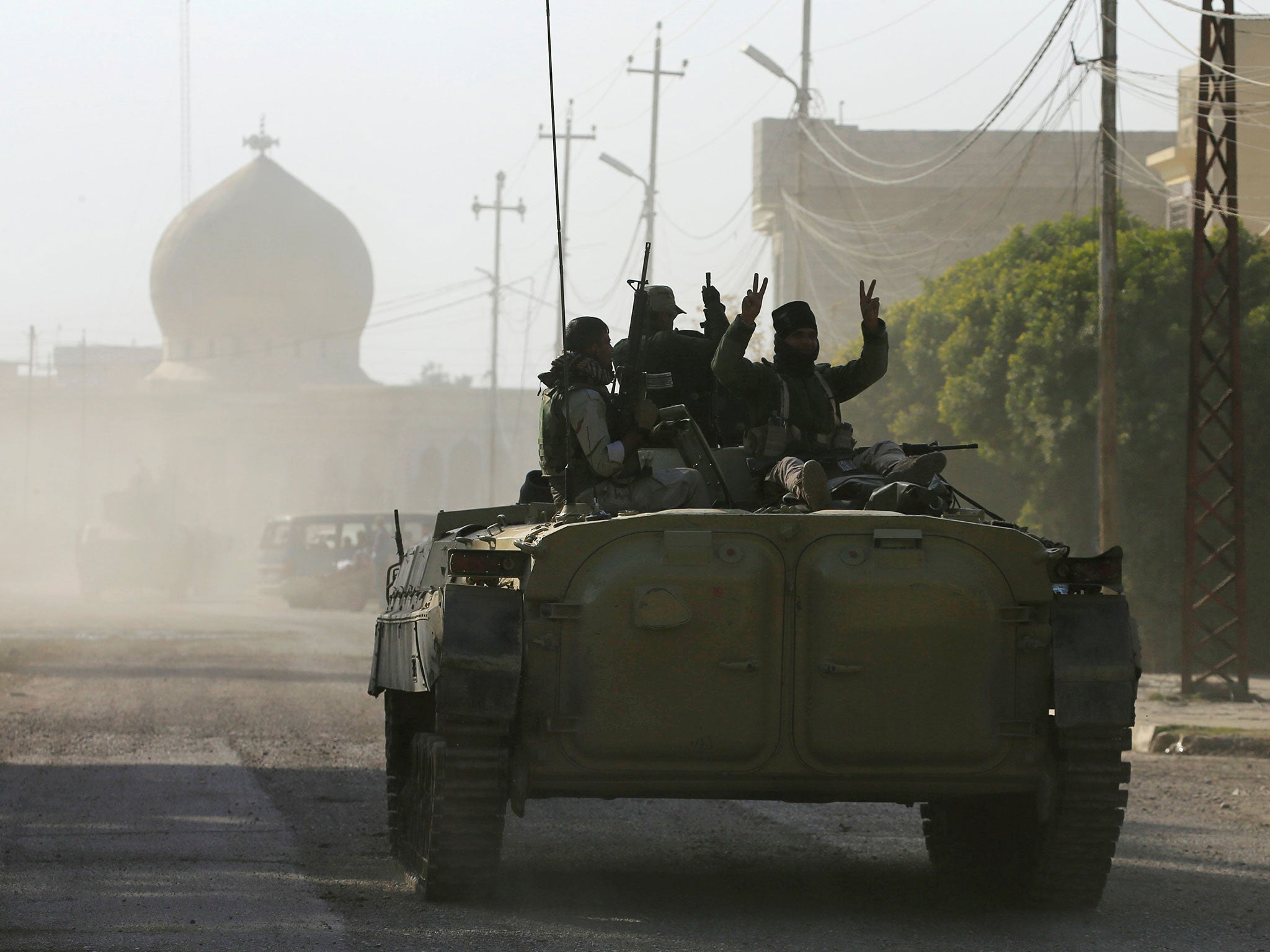Mosul offensive: Up to 30 civilians 'killed in US-led coalition air strike' as Iraqi forces continue push into Isis stronghold
UN warns almost half of casualties in military operation are civilians

Your support helps us to tell the story
From reproductive rights to climate change to Big Tech, The Independent is on the ground when the story is developing. Whether it's investigating the financials of Elon Musk's pro-Trump PAC or producing our latest documentary, 'The A Word', which shines a light on the American women fighting for reproductive rights, we know how important it is to parse out the facts from the messaging.
At such a critical moment in US history, we need reporters on the ground. Your donation allows us to keep sending journalists to speak to both sides of the story.
The Independent is trusted by Americans across the entire political spectrum. And unlike many other quality news outlets, we choose not to lock Americans out of our reporting and analysis with paywalls. We believe quality journalism should be available to everyone, paid for by those who can afford it.
Your support makes all the difference.Up to 30 civilians have allegedly been killed in an air strike targeting an Isis commander in Mosul as Iraqi forces continue their advance into their city.
The US-led coalition is investigating whether its planes were responsible for the reported massacre in the al-Jadida district, which came as the UN warned that almost 50 per cent of all casualties in the military operation are believed to be civilians.
Witnesses said they saw at least three missiles hit the house of a senior Isis militant called Harbi Abdel Qader on Thursday.
He was not inside the building at the time but several members of his family were among around 30 people who died, one resident told Reuters.
The Iraq Body Count group said at least 25 people were killed in the incident.
A spokesperson for US Central Command, which coordinates coalition air strikes, told The Independent it had bombed targets in the area on the day as part of numerous strikes targeting Isis fighters and infrastructure.
“The Coalition and Iraqi Air Force routinely conduct strikes throughout Western Mosul targeting Isis fighters and other military targets,” he added.
“Due to the relative proximity of the Coalition strikes to the vague location of alleged of civilian casualties Combined Joint Task Force – Operation Inherent Resolve (CJTF-OIR) will further assess this allegation.”
The spokesperson said all reports of civilian casualties are assessed and forces “work diligently to be precise” with targeting in accordance with international law.
The official total for civilians confirmed killed in US-led coalition air strikes stands at 188, although monitors say the real figure is far higher and a number of investigations are underway.
The UN has warned the Iraqi government and its foreign supporters of the risks posed to families trapped inside Isis-held parts of Mosul.
Iraqi troops, Kurdish forces and Shia militias have advanced through much of eastern Mosul, regaining control of key local government buildings and the city’s university on Friday, but areas to the west of the river Tigris remains under Isis control.
Around 1.5 million civilians were living in the city when the operation to retake it began in October, according to UN figures, and 400,000 have now been freed.
But Isis is known to be forcibly displacing families as it retreats to use them as human shields, with an estimated 750,000 people remaining in the more densely populated western part.
Lise Grande, the UN humanitarian coordinator in Iraq, cautioned that civilian deaths and the lack of a proper humanitarian response will fuel Isis, which bases its narrative on a perceived war between Muslims and the West.
“You would expect in a conflict like this that the number of civilian casualties would be around 15 per cent, a high of 20 per cent,” she said.
“What we’re seeing in Mosul is that nearly 50 per cent of all casualties are in fact civilians.
“It’s clear that this is because of direct targeting by combatants. They’re being targeted by Isil. They’re being shot as they try and leave the city and they’re being shot as they try and secure food and other resources.”

A plan by the Iraqi security forces is seeking to limit civilian casualties by banning artillery strikes, urging civilians to remain in their homes and providing humanitarian corridors.
But as the army and its allies close in on Mosul, humanitarian groups are concerned over the looming possibility of a siege and its dire consequences.
“As soon as Daesh [Isis] is defeated, there are a lot of people who need to get back home, to get back to their lives,” Ms Grande said. “If they don’t, the conditions which led to the rise of Isis will continue to be there.”
The American military hailed the success of Iraqi forces raising their flag over the Nineveh Governorate buildings retaking part of the Mosul University campus and a strategic third bridge on Friday.
Thick clouds of black smoke rose from the middle of the sprawling university complex as clashes continued on Saturday, with volleys of sniper and mortar fire targeting the advancing Iraqi forces from classrooms, dormitories and behind trees.
Operation Inherent Resolve spokesman Colonel John Dorrian said: “Work still needs to be done but Isis’ days in Mosul are quickly coming to an end.”
That assessment is not shared by the vast majority of security analysts, who foresee a gruelling battle lasting for months at least as Isis digs into the city under the cover of the civilians it will prevent leaving.

The group has honed its guerrilla warfare techniques even while losing previous strongholds including Fallujah in Iraq and Jarabulus in Syria, rigging deserted buildings and roads with explosives as they withdraw and sending suicide bombers into enemy lines.
Residents told how jihadis forced them out of their homes to use them as sniper positions, knocking through walls so they could move to safety between buildings after being spotted by Iraqi forces.
“Then there is bombardment to destroy the house, to destroy the sniper position,” one man told Reuters. “But the sniper will pop up again here or there.”
Isis fighters overran Mosul in the summer of 2014, with leader Abu Bakr al-Baghdadi using the city’s Grand Mosque to declare his “caliphate” after a rapid advance across Iraq and Syria.
Access to the city's central bank, a large taxable civilian population and nearby oilfields quickly made Isis the world's wealthiest terrorist group.
Mosul is now the last city Isis controls in Iraq, while in Syria it continues to battle against government forces, Kurds and opposing rebels on several fronts.
In Deir Ezzor, jihadis launched their biggest assault in a year on government-held areas of the contested city in an attempt to maintain a grip on the eastern stretch of Raqqa province, where its de facto capital lies.
Join our commenting forum
Join thought-provoking conversations, follow other Independent readers and see their replies
Comments